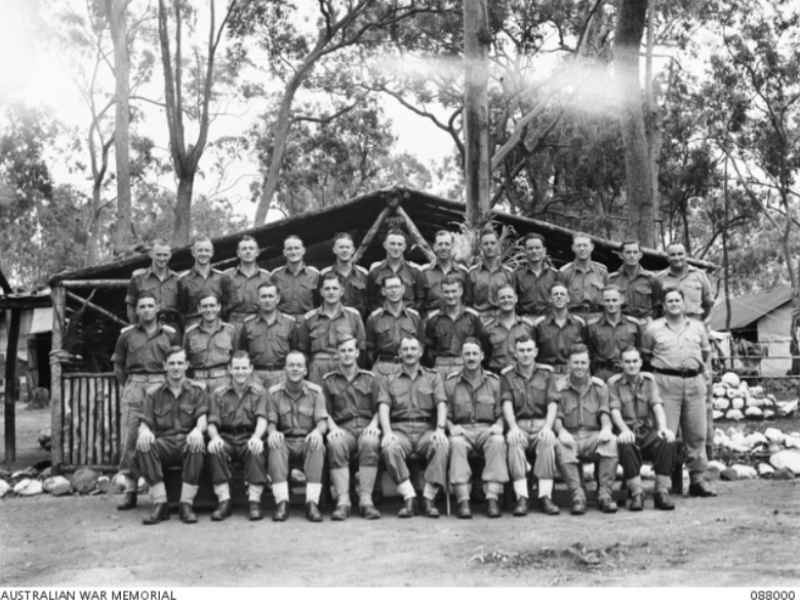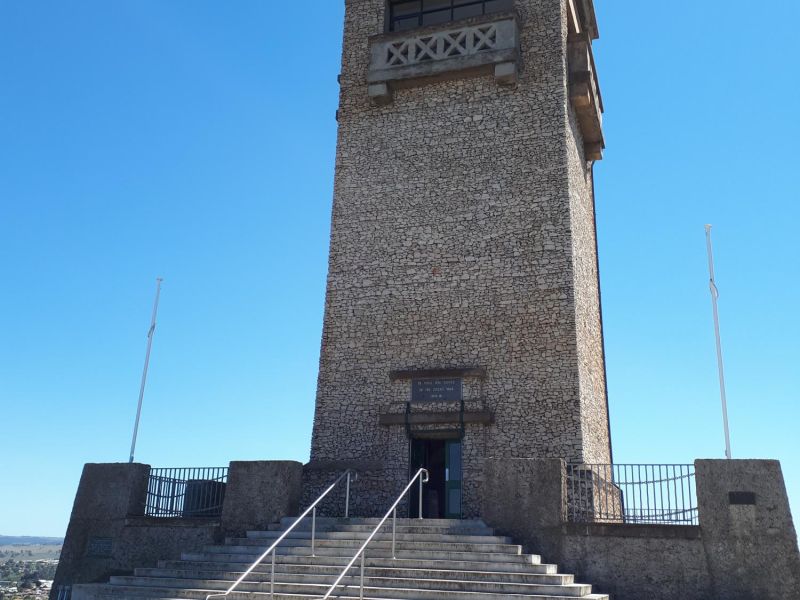Lieutenant Clarence Reginald Burke, 2/48th Battalion
Clarence “Clarrie” Burke was born 27 April 1913 to George and Augusta Burke of Goulburn, New South Wales. He had been born in Nimmitabel, and little is known of his early life – including whether he grew up in Nimmitabel or in Goulburn. After school, he worked for the Railway Department in Goulburn.
Burke enlisted in the second Australian Imperial Force in October 1939, and was in the first convoy to leave Australia with the 2/3rd Battalion of the 6th Division.
In January 1941, Burke had been promoted to corporal and took part in his first campaign against the Italians at Bardia and Tobruk.
His friend, Corporal Kit Best, later told how Burke had been surrounded by six Italian tanks during the advance, and for a short period of time it was “touch and go whether he would be taken into one of the tanks as a prisoner of war or shot on the spot”. In the end, an Italian American man, serving with the Italian army in one of the tanks, persuaded the others to let Burke go: he was stripped of his equipment and turned loose. The tanks then ran into an Australian anti-tank platoon and were put out of action – but, Best added, “Clarrie is still going strong”.
In March, the 2/3rd Battalion fought the Germans in Greece. When they were in late April, Burke remained as part of the 16th Brigade. It was later reported that “he carried a wounded comrade from the shore to a destroyer although the … Germans were on his brigade’s heels, and the act was done under fire”.
In June and July 1941, the 2/3rd Battalion were in Syria and Lebanon, where again Burke proved himself as a soldier, and by the end of the year, was mentioned in despatches. His friend, Bruce Emmett, also in the 2/3rd, later said that he “should definitely have been decorated for his bravery and leadership in Syria”.
The Battalion then moved to the Pacific and fought the Japanese along the Kokoda Trail.
After five months in New Guinea, Burke returned to Australia, was promoted and transferred to the 2/48th Battalion.
The 2/48th landed on Tarakan island off the coast of Borneo in May 1945, pushing inland towards the town. Lieutenant Burke led a platoon to capture the southern knoll near the Lingkas track, with bitter fighting against the Japanese.
On the 7th of May 1945, Lieutenant Clarrie Burke was shot by a Japanese rifleman. Although every effort was made to treat his wound, he died shortly afterwards.
Today Lieutenant Clarrie Burke lies in the Labuan War Cemetery in Malaysia under the words, “His duty fearlessly and nobly done. Ever remembered”.
Bruce Emmett later remarked, “All I can say is that the people of Goulburn who knew Clarrie, and the people who did not know him, can and must be very, very proud. Allow me to say on behalf of his mates, ‘We will not forget’.”
Meleah Hampton, Historian, Military History Section
- Australian War Memorial https://www.awm.gov.au/collection/088000

 Australian War Memorial
Australian War Memorial